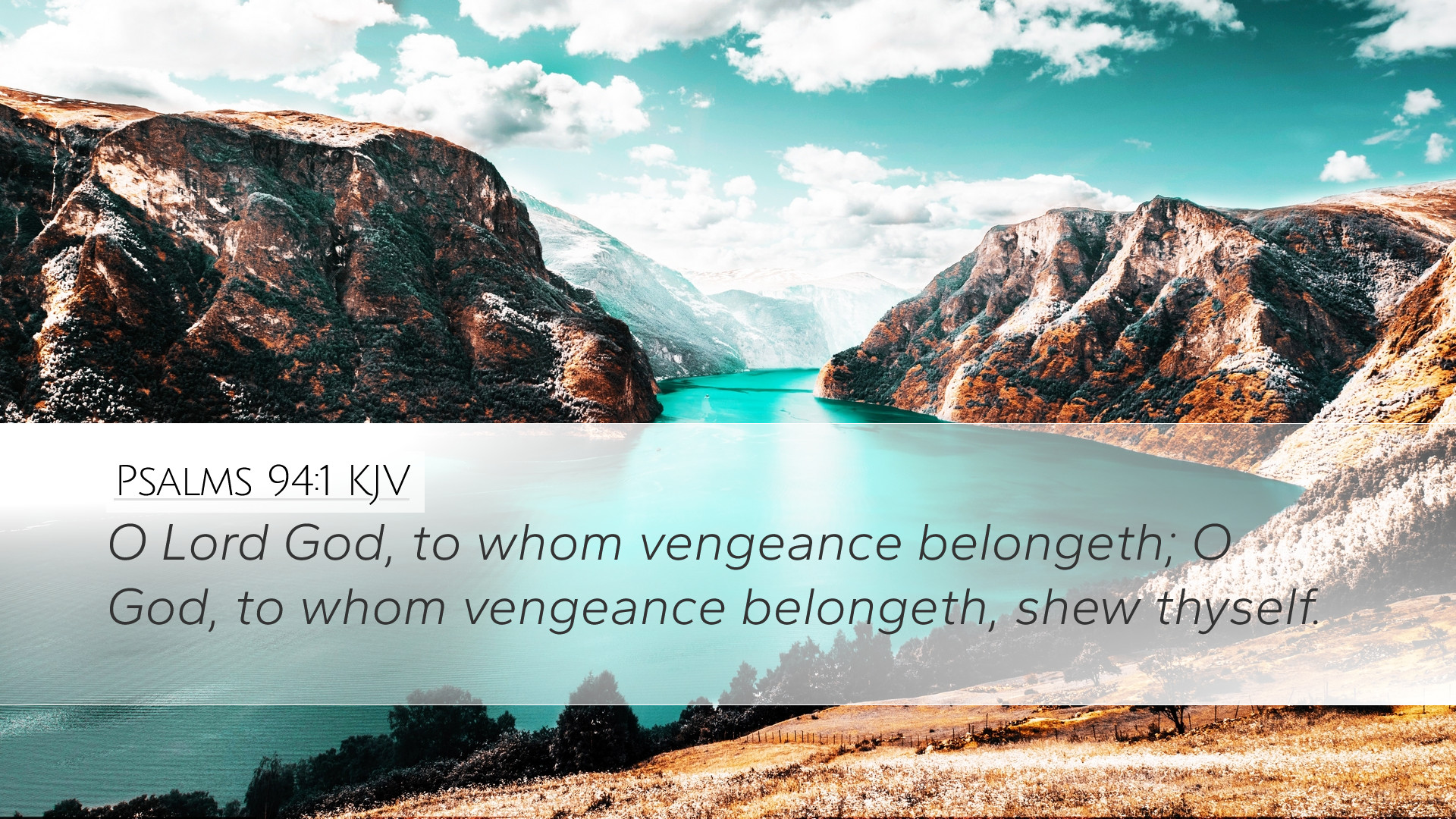Commentary on Psalms 94:1
Bible Verse: Psalms 94:1 - "O Lord God, to whom vengeance belongs; O God, to whom vengeance belongs, show thyself."
Contextual Overview
The 94th Psalm is categorized among the royal psalms, which reflect on God's sovereignty over His creation and His justice towards mankind. This particular Psalm is an appeal for divine justice in the face of oppression and wickedness. The psalmist expresses a profound yearning for God to manifest His power and vengeance against the unrighteous who thrive despite their misdeeds.
Verse Breakdown
The plea, "O Lord God, to whom vengeance belongs," is a recognition of the Lord's authority to judge and administer justice. This introductory phrase establishes the premise that vengeance is divine, highlighting God's sovereign position over human affairs.
1. The Divine Right of Vengeance
According to Matthew Henry, the assertion that vengeance belongs to God underscores that it is not for humans to take matters into their own hands. The psalmist appeals for God to act because of the inherent righteousness of His character. This notion is consistent with other Biblical teachings that declare God as the ultimate judge of all the earth (Genesis 18:25).
2. The Call for God's Manifestation
In the repeated plea to “show thyself,” the psalmist seeks the active intervention of God in the affairs of men. Albert Barnes highlights that such a request indicates a longing for God’s presence in action, not merely in silence. The challenge posed by the psalmist reflects the struggles faced by the faithful when confronted with apparent injustices.
3. The Nature of God's Judgment
Adam Clarke elaborates on the concept of divine vengeance being restorative rather than merely punitive. Clarke's insights suggest that God’s judgment serves a purpose beyond retribution—it aims to establish justice and integrity within His creation. This perspective encourages the faithful to trust in God's timing and method for delivering justice.
Theological Implications
Psalms 94:1 teaches about the sovereignty of God and the necessity for the faithful to rely on divine intervention during times of distress. The recognition that vengeance belongs to God addresses key theological constructs concerning justice, mercy, and the nature of God’s involvement in worldly matters.
1. Trusting God's Justice
Believers are reminded that though they may seem powerless in the face of evil, ultimately, God oversees all actions. The psalmist's cry exemplifies the trust that needs to be placed in God's righteousness and judgment.
2. The Temporal vs. Eternal Perspective
Pastoral reflections on this passage remind us that while wickedness may succeed temporarily, God's justice is eternal. Those suffering oppression must maintain an eternal perspective as taught in Romans 12:19, where believers are cautioned against seeking personal vengeance.
Applications for Pastors and Theologians
In light of Psalms 94:1, there are practical applications for pastors, students, and theologians:
- Encourage Justice-Seeking: Pastors can use this psalm to comfort congregants facing oppression, encouraging them to seek God’s justice.
- Teach about God’s Sovereignty: Incorporating this verse in sermons can lead to robust discussions about God's authority over human affairs.
- Promote Patience and Faith: Emphasizing God’s timing in delivering justice can instill patience and steadfastness in believers.
Conclusion
Psalms 94:1 provides a profound reflection on the nature of divine justice and encourages believers to trust in God’s ultimate authority over vengeance. The insights derived from Matthew Henry, Albert Barnes, and Adam Clarke enhance our understanding of the passage, urging believers to await God's action in a world marred by inequity. For the faithful, this psalm not only affirms God’s sovereignty but also reassures them of His commitment to justice.


